
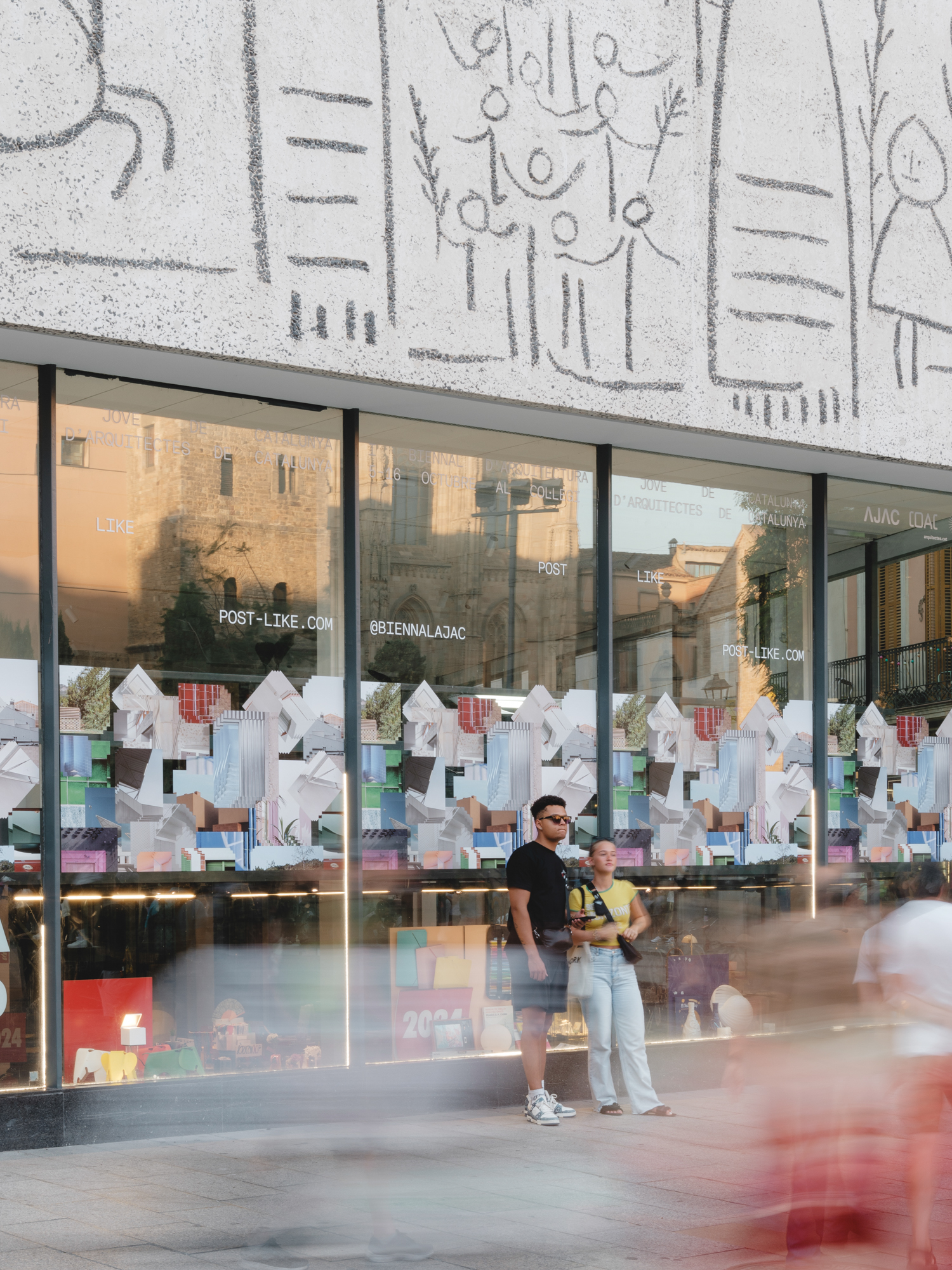


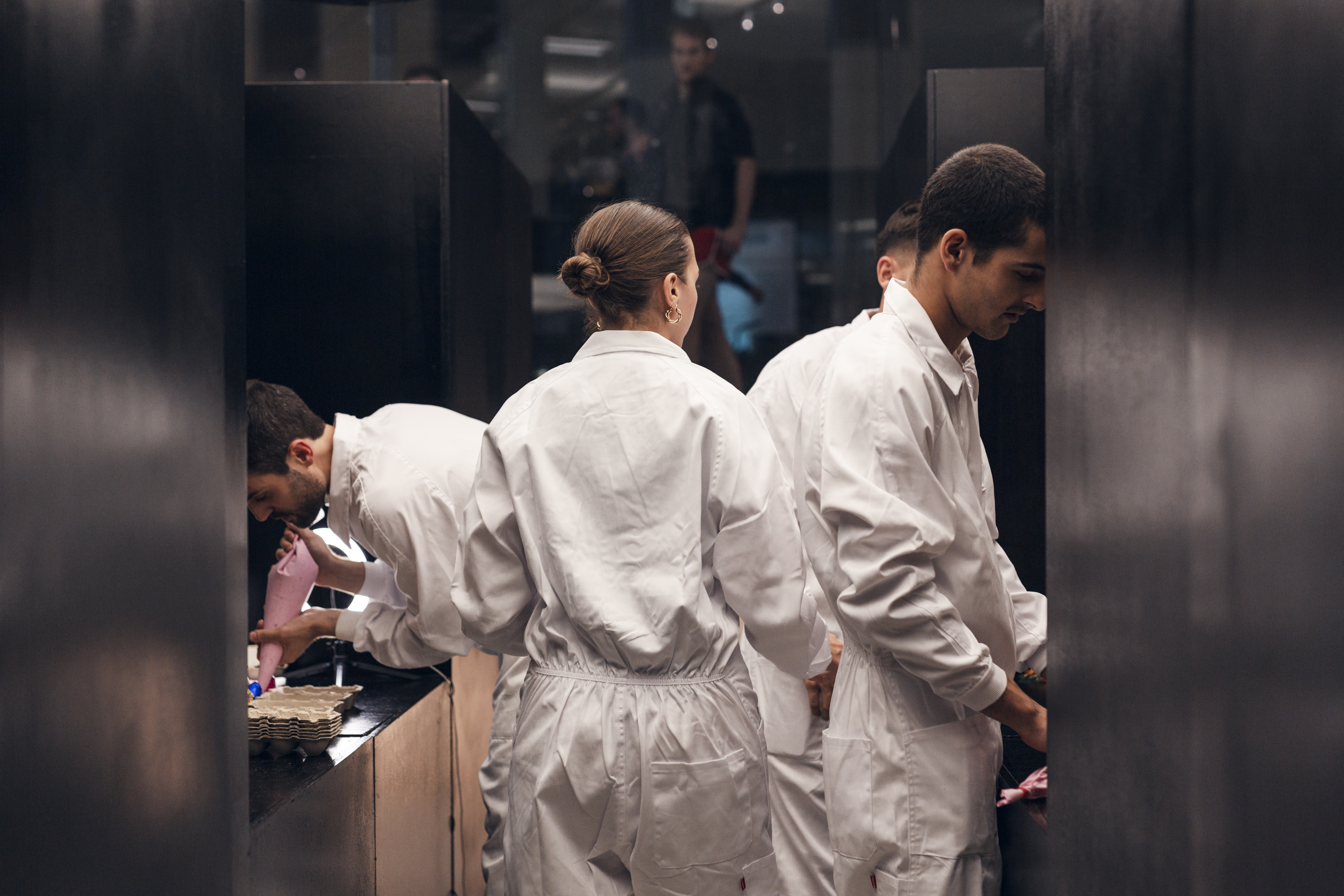

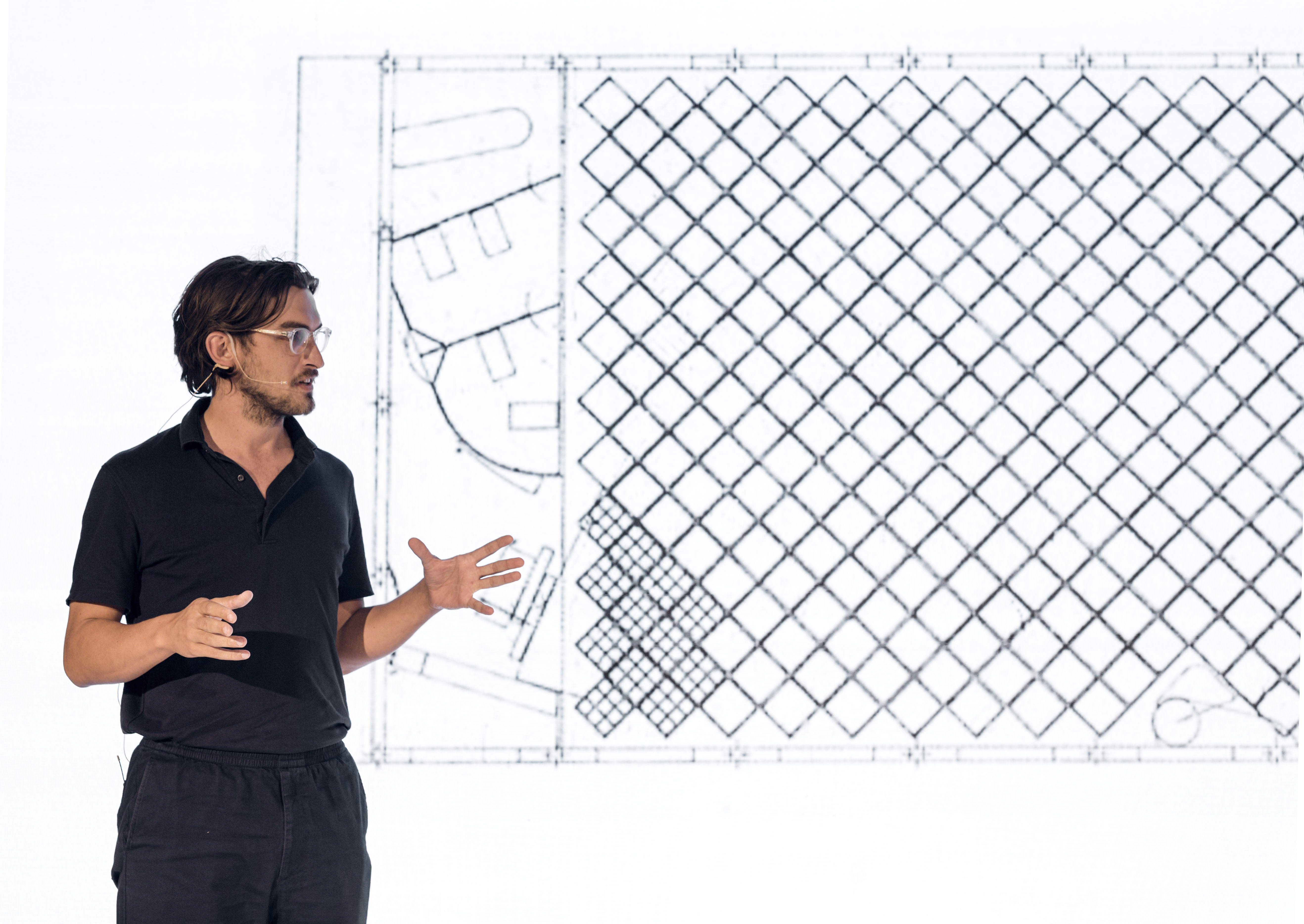
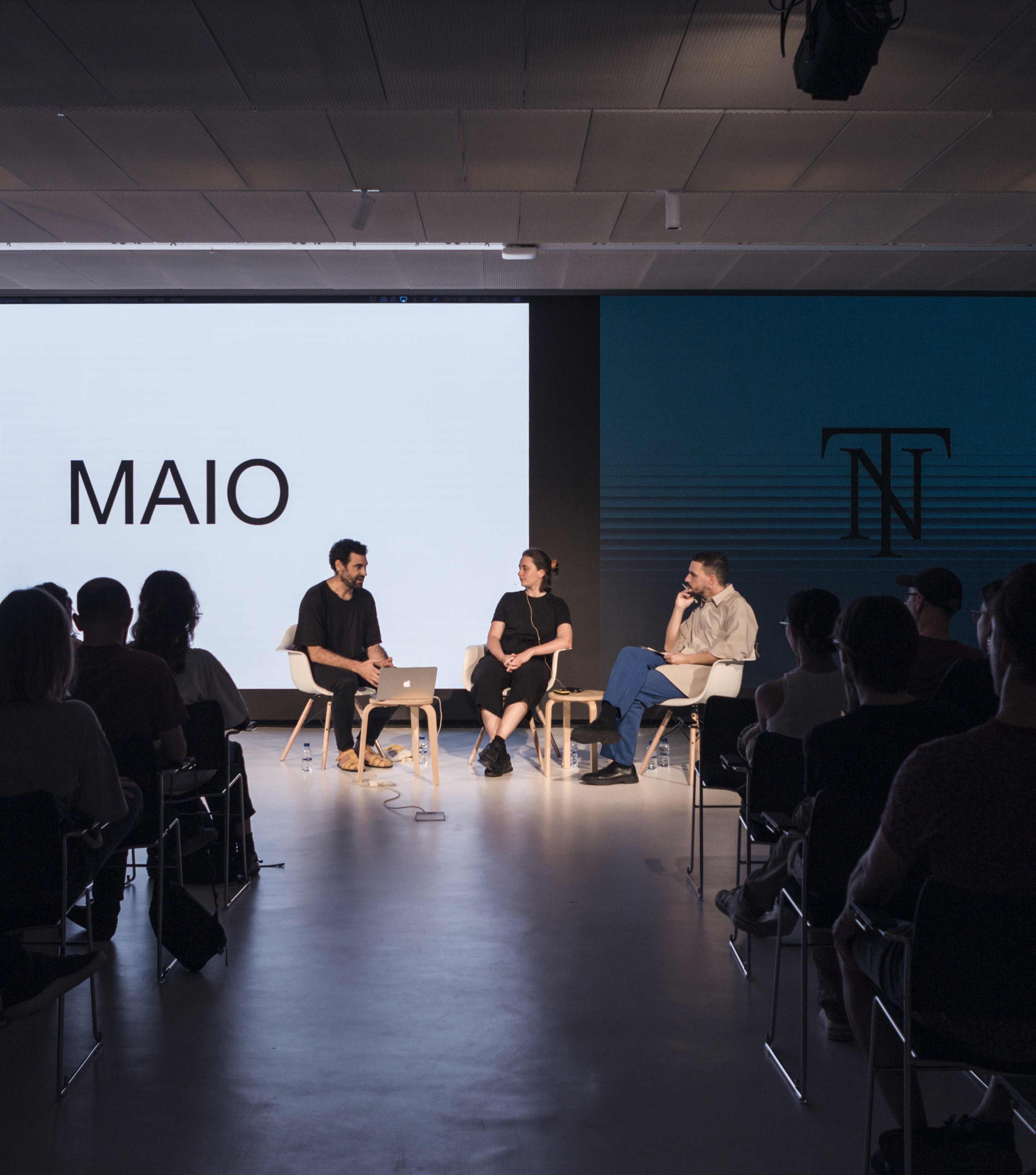
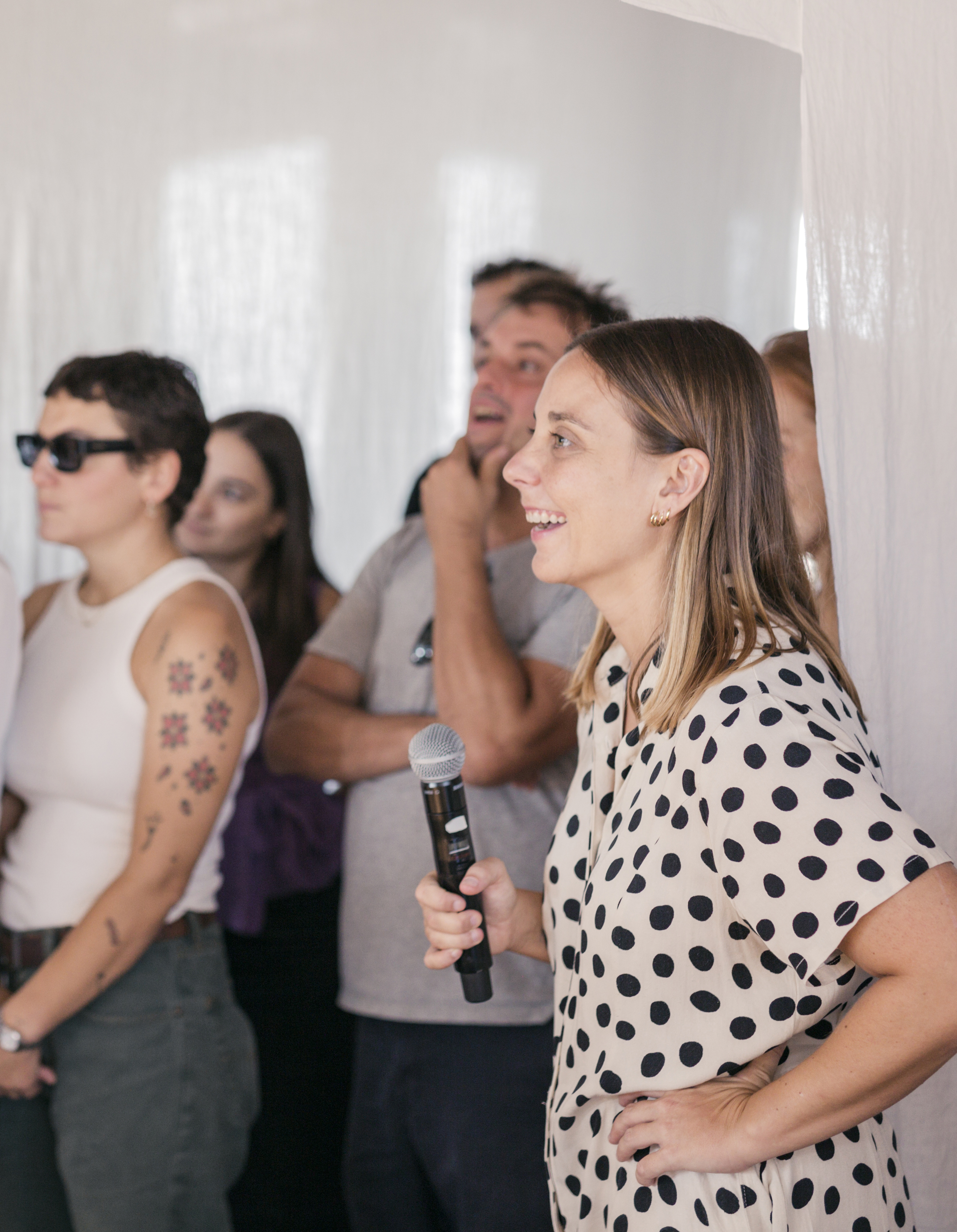
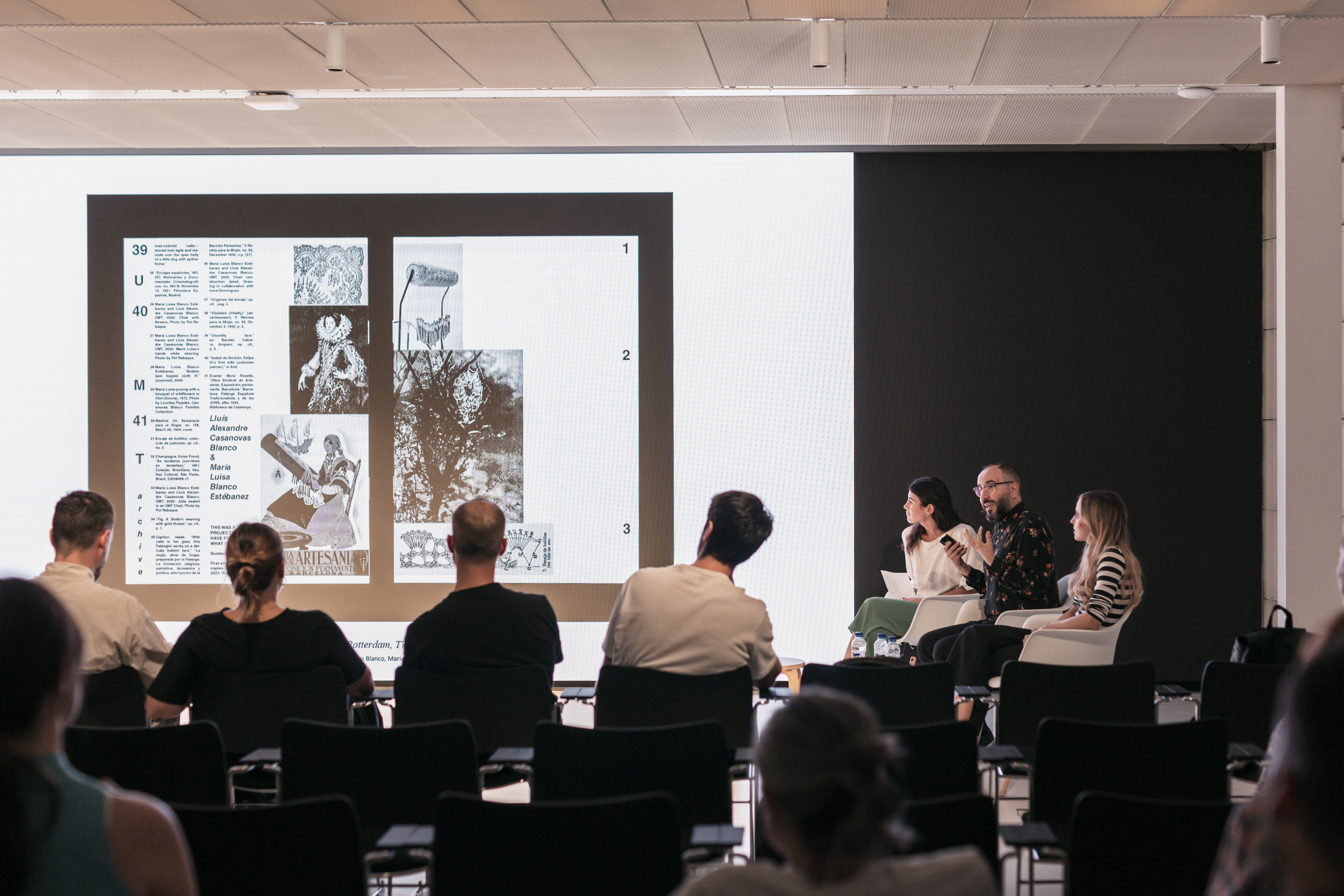



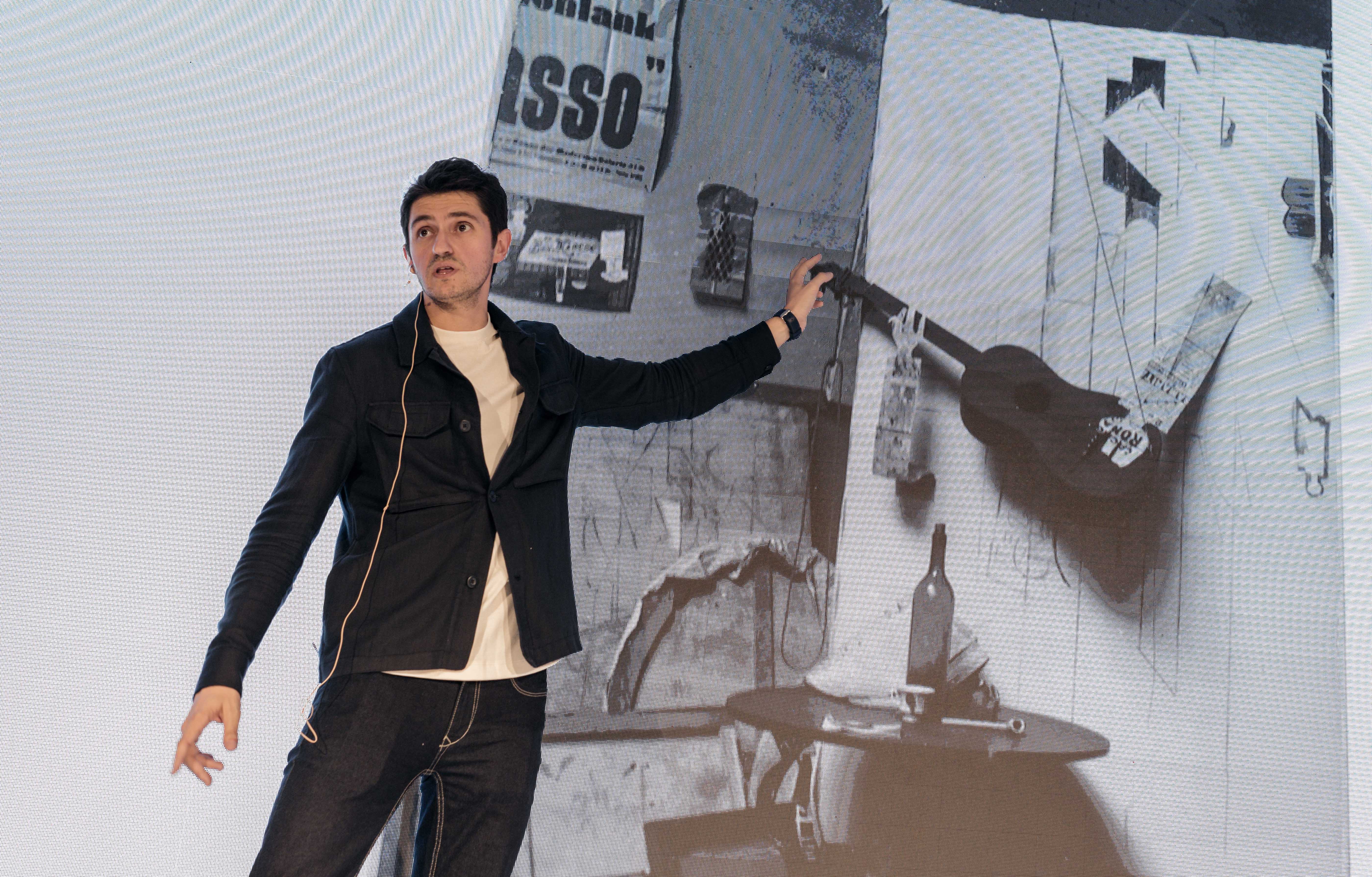

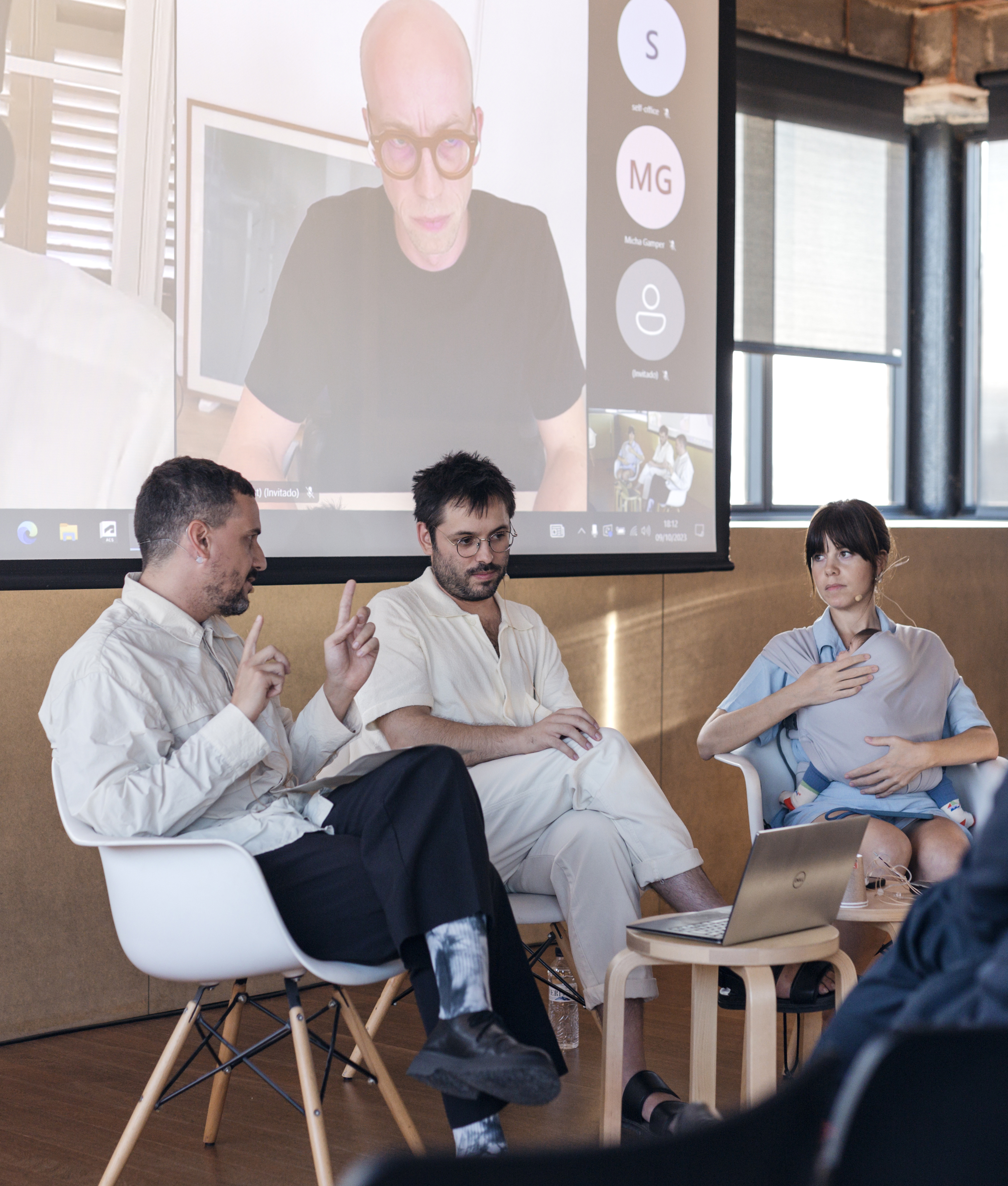
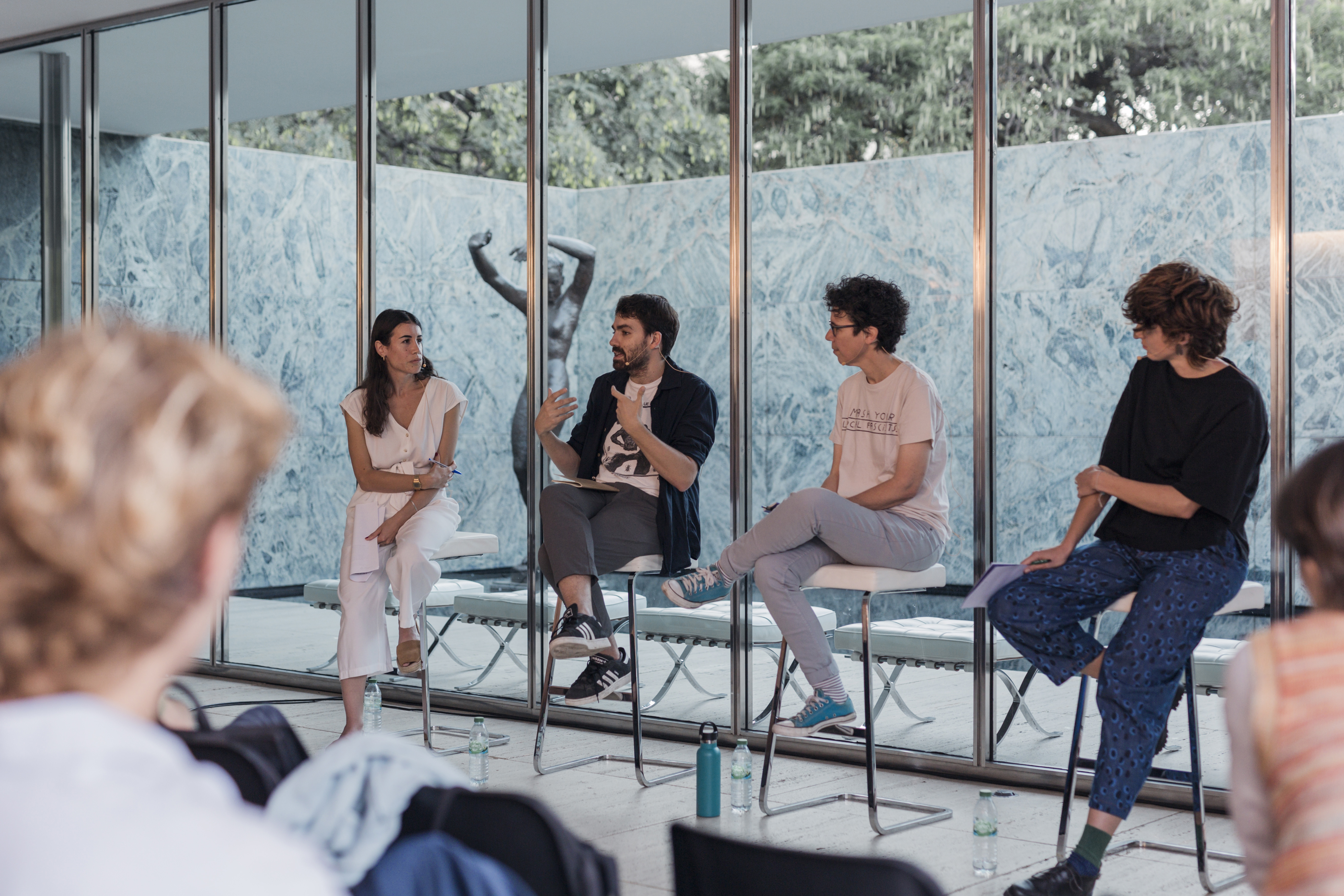
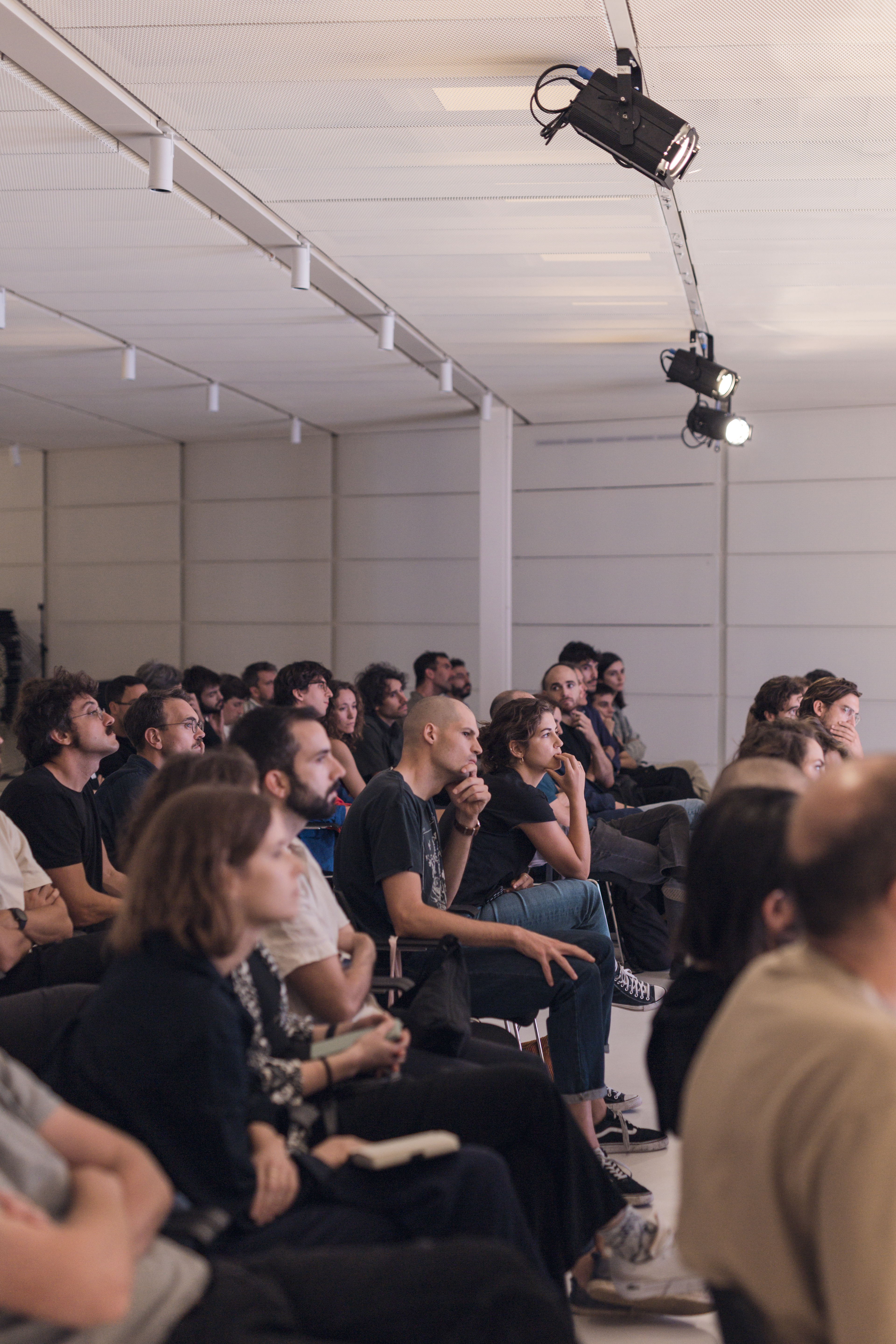
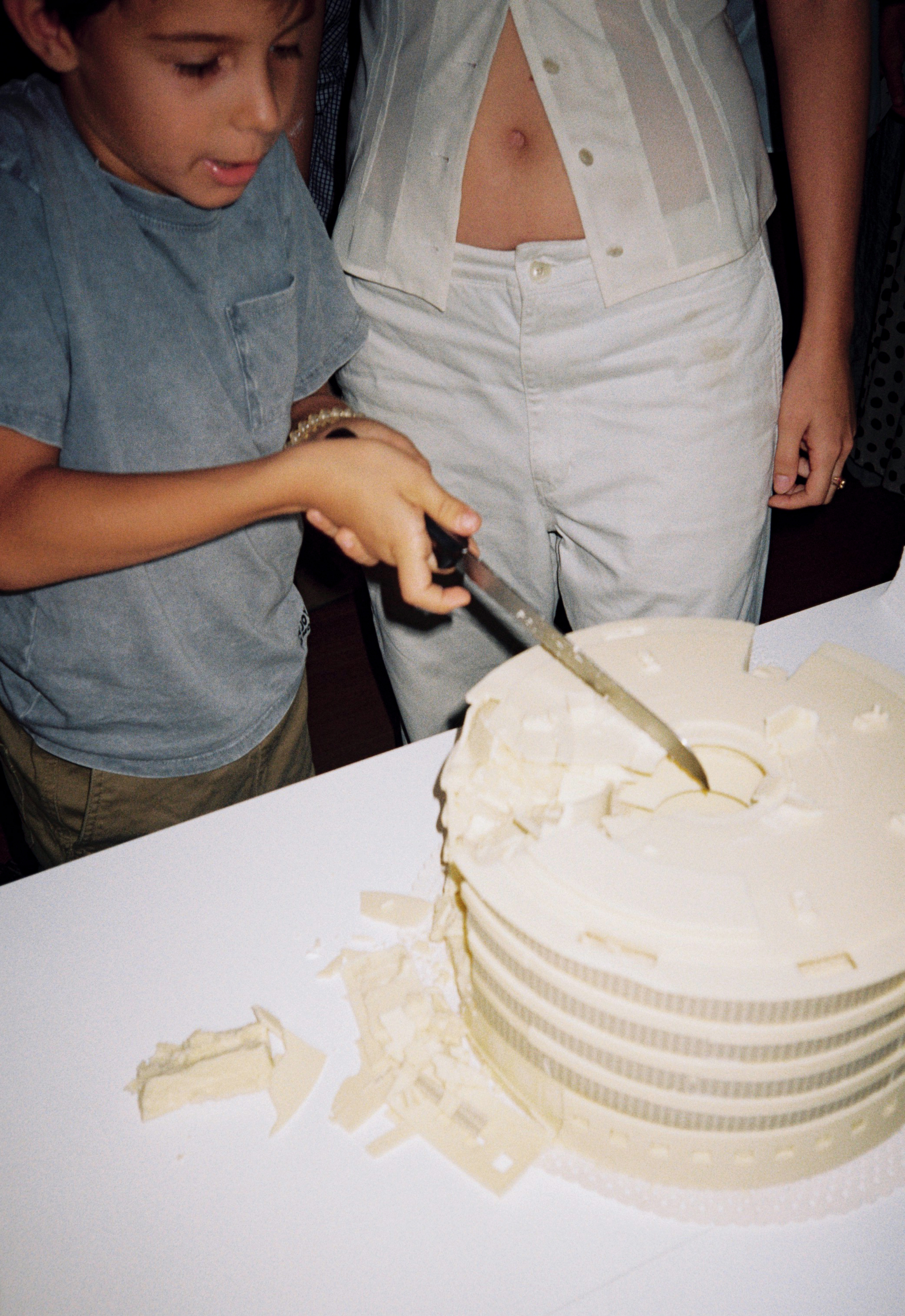


Post Like, 2023
1st Young Architecture Biennial of Catalonia.
Barcelona, Spain
www.post-like.com // @biennalajac
Organization: Catalan Board of Architects (COAC), Agrupació Joves Arquitectes de Catalunya (AJAC), Open Centre for Architecture, Fundació Mies Van der Rohe
Curatorial Team: Marina Povedano, Laura Solsona, Arnau Pascual, Eduard Fernàndez
Photography: Cecília Coca
Graphic Design: Lorena G. Ortiz
Architecture is produced, disseminated, and consumed through images. The widespread use of images as a means of communication, together with the extensive use of new technologies, has created a space for shared encounters and dialogue among disciplines. Through the use of a common language, these disciplines generate a visual culture that is influenced by algorithmic relationships of similarity and affinity. We consume it constantly, almost unconsciously, in our daily lives.
1st Young Architecture Biennial of Catalonia.
Barcelona, Spain
www.post-like.com // @biennalajac
Organization: Catalan Board of Architects (COAC), Agrupació Joves Arquitectes de Catalunya (AJAC), Open Centre for Architecture, Fundació Mies Van der Rohe
Curatorial Team: Marina Povedano, Laura Solsona, Arnau Pascual, Eduard Fernàndez
Photography: Cecília Coca
Graphic Design: Lorena G. Ortiz
Architecture is produced, disseminated, and consumed through images. The widespread use of images as a means of communication, together with the extensive use of new technologies, has created a space for shared encounters and dialogue among disciplines. Through the use of a common language, these disciplines generate a visual culture that is influenced by algorithmic relationships of similarity and affinity. We consume it constantly, almost unconsciously, in our daily lives.
Social networks have become an essential part of the analog
reality as an indispensable condition of the creative process: a tool for
communication and dissemination that aims to satisfy the desire for likes. This
desire is linked to the construction of digital identities and therefore seeks
recognition and admiration from others in order to grant authenticity. But at
the same time, this desire tends to exclude anything that is different and
uncomfortable, limiting criticism and alternative ideological positions. How do
we make the eye of the 21st century, addicted to the transience and obscenity
of images, understand them as a vehicle for unveiling intimate stories that
require two lost qualities: reflection and criticism?
The construction of a message, of what comes next, of the post, and at the same time, the rejection of being merely consumable, is what validates the image itself and provides it with meaning. This fact is particularly relevant due to the constructive nature of architecture. Confronting the current environmental issues generates a new anthropocenic awareness that questions the hegemonic architectural discourse, emphasizing the material processes and the inherent political, economic, and climatic implications of each project.
The construction of a message, of what comes next, of the post, and at the same time, the rejection of being merely consumable, is what validates the image itself and provides it with meaning. This fact is particularly relevant due to the constructive nature of architecture. Confronting the current environmental issues generates a new anthropocenic awareness that questions the hegemonic architectural discourse, emphasizing the material processes and the inherent political, economic, and climatic implications of each project.